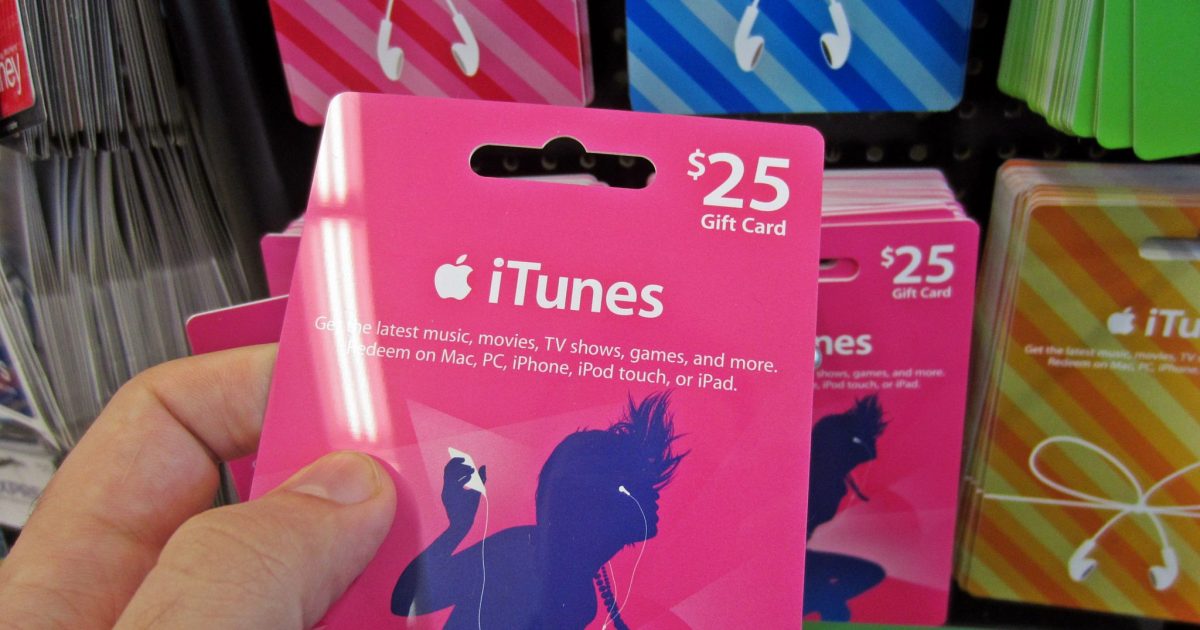The ACCC is warning people to be on the lookout for scammers who are trying to con their victims into paying for scams with Apple iTunes gift cards.

During 2017 to date, reports to the ACCC’s Scamwatch show 1236 people lost nearly $540,000 to scammers using gift cards as payments.
This is a growing trend: in the 2015-16 financial year losses were about $480,000.
“Scammers are increasingly getting their victims to pay with iTunes gift cards as they can quickly on-sell them and pocket the money,” ACCC Deputy Chair Delia Rickard said.
“If someone asks you to pay for anything using an iTunes gift card, it is a scam. There are never any circumstances where a legitimate business or government department will ask for payment this way.”
Apple’s website clearly states iTunes gift cards can only be used to purchase goods and services on the iTunes Store, App Store, iBooks Store, or for an Apple Music membership.
Reports to Scamwatch show there are three common scam examples the ACCC is currently seeing where scammers are demanding iTunes gift cards as payment:
- Tax scams – the scammer pretends to be from the Australian Taxation Office and claims there is a warrant out for their victim’s arrest. If the victim doesn’t pay an immediate ‘fine’ using iTunes gift cards, the scammer claims police will come and handcuff them.
- Catch-a-hacker scam – scammers pretending to be Telstra will ask their victim to help them catch a ‘hacker’ who’s trying to get into their PC or smart devices. They’ll use this sham story to get the victim to buy iTunes cards as a ‘trap’ for catching the hacker. Unfortunately the scammer will quickly get the serial numbers for those gift cards and sell them before the victim realises they’ve been duped.
- Centrelink scams – the scammer pretends to be from Centrelink and tells their victim they’re entitled to an additional payment, such as for their pension, and that they need to pay a ‘release fee’ in iTunes gift cards to receive the payment.
The scammers will get their victims to travel to a business where iTunes gift cards are sold, such as a supermarket or department store, and get them to purchase amounts sometimes worth thousands of dollars.
Businesses that sell iTunes gift cards are encouraged to inform their staff about these scams so that they can help warn customers and even question any customers spending large amounts of money on iTunes gift cards.
“The scammers are very persistent once they have a victim hooked and will, for example, keep their victim on the phone while they’re in a store buying the gift cards. Once a victim has bought the card, the scammer will get them to quickly read the serial number on the back—it’s this information they use to then on-sell the gift card,” Ms Rickard said.
“If you pay for a scammer’s con with iTunes gift cards it’s nearly impossible to get your money back. Don’t ever believe the scammer’s lies, no matter how convincing they sound—hang up on their calls and delete their emails immediately.”
People targeted by scammers asking for iTunes gift cards as payment can report the scam to www.scamwatch.gov.au.


